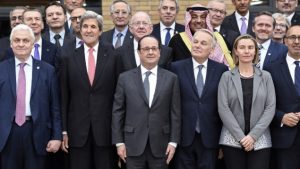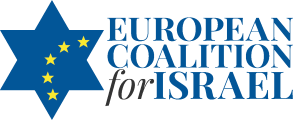 Paris, January 17th, 2017 – The organizers of the so-called “Paris Peace Conference” have experienced a partial backlash from this badly timed international summit conference, just days before the inauguration of the new US President and the swearing in of his new administration in Washington. With no representatives from the new US administration or from the two parties who are directly involved, the Israeli government and the Palestinian Authority, the conference essentially offered no new concrete proposals on how to restart the stalled peace process in the Middle East.
Paris, January 17th, 2017 – The organizers of the so-called “Paris Peace Conference” have experienced a partial backlash from this badly timed international summit conference, just days before the inauguration of the new US President and the swearing in of his new administration in Washington. With no representatives from the new US administration or from the two parties who are directly involved, the Israeli government and the Palestinian Authority, the conference essentially offered no new concrete proposals on how to restart the stalled peace process in the Middle East.
The French initiative may instead have accelerated a geo-political shift by further alienating the British government from Brussels. British Foreign Secretary Boris Johnson intentionally kept away from the Paris conference, but he gave the British representative clear instructions not to sign any statement of its conclusions, thus giving a clear indication of where the loyalty of the British government will lie in the future. Australia also refused to sign the final document. Canada and many EU member states chose to send only second-ranking officials to the summit instead of their foreign ministers. Newly appointed UN Secretary-General António Guterres also chose not to attend.
The fallout was again reflected on Monday, just one day after the Paris summit, as the 28 EU Foreign Ministers met in Brussels for a pre-scheduled EU-Council meeting where a luncheon had been devoted to discussing the outcome of the Paris summit. The British Foreign Secretary decided to block the adoption of the Paris summit conclusions by the EU foreign ministers, hence causing further embarrassment for the EU during a week which was intended to demonstrate EU solidarity and unity for the peace process. The British stance was supported by a handful of Eastern European countries.
“The Paris Peace Conference may have failed in its stated objective to re-start the peace process, but it has helped to galvanize grassroots support for Israel around the world”, said ECI Founding Director Tomas Sandell in a statement in Stockholm on Tuesday morning, where he was to speak in the national parliament. Sweden currently holds the rotating chair of the UN Security Council.
ECI had been raising awareness of the upcoming conference in Paris through an active social media campaign already for weeks. Many Christians travelled to Paris on Sunday to show their support for Israel while many more hosted prayer vigils in churches and organized rallies around the world.
In the conference conclusions, the participants (except for the UK and Australia) confirmed their support for a two state solution with a call to the two parties directly involved in the peace process to restate their commitment to this solution, to take urgent steps in order to reverse the current negative trends on the ground, including continued acts of violence and ongoing settlement activity, and to start meaningful direct negotiations. The text of the final conclusions was softened after pressure from the outgoing US administration; criticism of Israeli settlements was balanced by the inclusion of a statement of the need to stop (Palestinian) terrorism and incitement.
